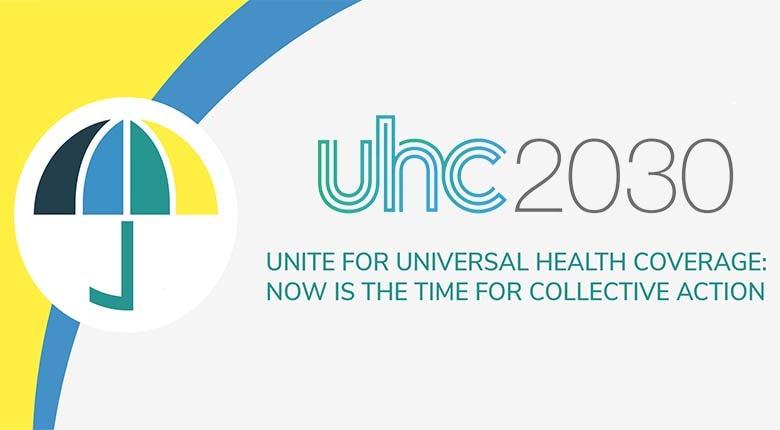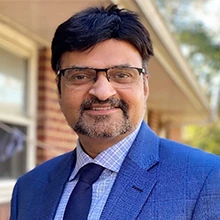
Global partners have committed to Universal Health Coverage (UHC) by 2030 as part of the Sustainable Development Goals. UHC is a main driver of all World Bank’s investment in areas related to health, nutrition and population. I had the opportunity to participate as a member of the UHC 2030 core team representing Public Financial Management in health along with other experts and health leaders from the World Bank at a UHC 2030 Steering Committee meeting at the United Nations Headquarters last month.
The question before us moving forward is simple. How do we make UHC a reality by 2030?
According to the World Bank and the World Health Organization, at least half the world’s population still lacks access to quality, essential health services and 100 million people are pushed into extreme poverty each year because of health expenses. Even when services are available, high costs can limit access, leaving families sick impeding their social and economic opportunities. If this continues, the world will fail to achieve Sustainable Development Goal (SDG) 3, improving global health, and SDG1, ending poverty, by 2030.
How do we put ourselves on an accelerated track to meet targets? What are the nuts and bolts to make it happen?
Public Financial Management (PFM) systems can be some of the ‘nuts and bolts’ to help drive political will for effective health financing and service delivery. There is an established positive correlation between health service delivery and the strength of PFM systems. Here are the key areas where PFM can contribute to UHC 2030:
- Bigger and Better Budgets for health: PFM systems need to be geared to justify the ongoing advocacy for enhanced budget allocations for the health sector. The reforms could include: multi-sectoral collaboration and commitment toward budget requests (in Japan, the social sectors—education, health and social protection—and transport collaborated to make the case for investments in universal health coverage); and switching from traditional line item budgeting to program-based budgeting, which would help facilitating more accountability for results.
- Donor coordination and progressive use of country PFM systems: National budgets are complemented by support from development partners in the health sector. A significant portion of the development aid to the health sector passes through parallel systems. A study in 2016 by the World Bank and other agencies advocating for UHC by 2030 found that the cost of using parallel systems was more than four times higher relative to the option of relying on country systems and resulted in limited skills transfer to countries. Progress towards UHC by 2030 could be accelerated by strengthening countries own PFM systems so donors don’t insist on the use of parallel systems.
- Budget execution and alignment with goals of improved service delivery: Health service delivery is affected by demand-side drivers (limited physical access to hospitals and affordability issues such as high out-of-pocket expenses) and supply-side barriers (delayed budgets for critical expenses by Ministries, lack of flexibility in government spending, limited skills and knowledge of agencies, non-availability of drugs/staffing etc). Some of these issues are rooted in PFM systems. There is no single formula or solution applicable to all countries dealing with budget-execution challenges. The World Bank is developing a conceptual framework and toolkit to understand the PFM challenges to health service delivery and customize actionable solutions to countries.
- Internal controls, oversight and accountability for health expenditure: Countries with strong PFM systems deliver better health service outcomes and can better justify investments in health. A common cause of worry in public expenditure is the risk of irregular expenditure due to inefficiencies, negligence, wasteful use, poor procurement practices, corruption, and fraud. Transparency and accountability through citizen engagement (including civil society organizations), internal controls, financial reporting, external audit, and parliamentary (or other similar means of accountability) are critical PFM foundations to build trustworthy public expenditure in the health sector. These foundations can be strengthened, targeted and prioritized by PFM reforms by Ministries of Finance and Health with active participation from all stakeholders.
UHC by 2030 is a global agenda with the aim to ‘leave no one behind’. PFM practitioners across the globe need to play a pivotal role in providing the systems needed to achieve the goal. Successful progress toward UHC by 2030 is built on strong global and national consensus using a multi-stakeholder mechanism.
Is there a forum to bring together PFM practitioners towards UHC by 2030?
Yes, the Financial Management Technical Working Group (FMTWG) under UHC2030, an umbrella global movement to build strong health systems to ensure universal health coverage. The working group brings together financial management experts to reflect on the issues and find solutions.
Among other things, the group is working on key steps to support UHC 2030 including the promotion of joint Donor Government approaches to PFM in health studies, sharing knowledge on PFM issues in health and implementation of joint Financial Management harmonization and alignment approaches. Anyone who promotes UHC is welcome to join the movement.
For more information on the activities of the FMTWG, please visit the webpage.


Join the Conversation